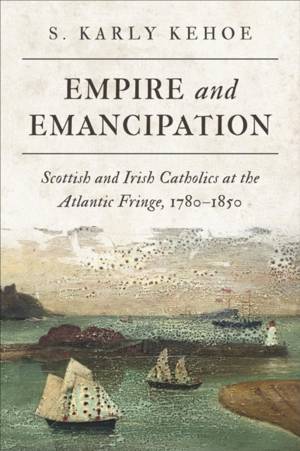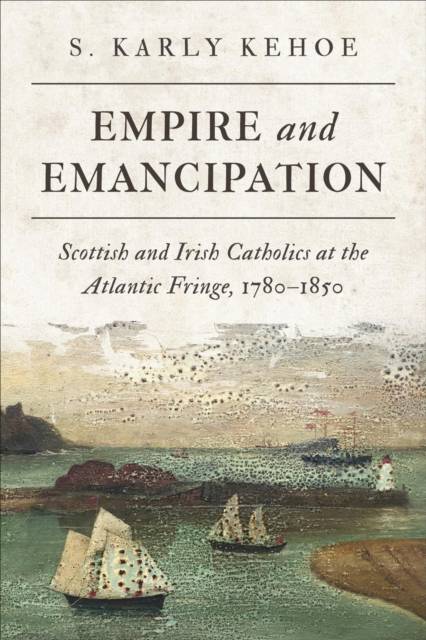
- Afhalen na 1 uur in een winkel met voorraad
- Gratis thuislevering in België vanaf € 30
- Ruim aanbod met 7 miljoen producten
- Afhalen na 1 uur in een winkel met voorraad
- Gratis thuislevering in België vanaf € 30
- Ruim aanbod met 7 miljoen producten
Empire and Emancipation
Scottish and Irish Catholics at the Atlantic Fringe, 1780-1850
S Karly KehoeOmschrijving
Empire and Emancipation explores how the agency of Scottish and Irish Catholics redefined understandings of Britishness and British imperial identity in colonial landscapes. In highlighting the relationship of Scottish and Irish Catholics with the British Empire, S. Karly Kehoe starts an important and timely debate about Britain's colonizer constituencies.
The colonies of Nova Scotia, Cape Breton Island, Newfoundland, and Trinidad had some of the British Empire's earliest, largest, and most diverse Catholic populations. These were also colonial spaces where Catholics exerted significant influence. Given the extent to which Scottish and Irish Catholics were constrained at home by crippling legislation, long-established patterns of socio-economic exclusion, and increasing discrimination, the British Empire functioned as the main outlet for their ambition. Kehoe shows how they engaged with and benefitted from the security needs of an expanding empire, the aspirations of an emerging middle class, and Rome's desire to expand its influence in British territories.
Examining the experience of Scottish and Irish Catholics in these colonies exposes how the empire levelled the playing field for Britain's national groups and brokered a stronger and more coherent British identity. In highlighting specific aspects of the complex and multifaceted relationship between Catholicism and the British imperial state, Kehoe presents Britishness as an identity defined much more by civil engagement and loyalism than by religion. In this way, Empire and Emancipation furthers our understanding of Britain and Britishness in the Atlantic world.
Specificaties
Betrokkenen
- Auteur(s):
- Uitgeverij:
Inhoud
- Aantal bladzijden:
- 302
- Taal:
- Engels
- Reeks:
Eigenschappen
- Productcode (EAN):
- 9781487541071
- Verschijningsdatum:
- 15/02/2022
- Uitvoering:
- Hardcover
- Formaat:
- Genaaid
- Afmetingen:
- 150 mm x 229 mm
- Gewicht:
- 498 g

Alleen bij Standaard Boekhandel
Beoordelingen
We publiceren alleen reviews die voldoen aan de voorwaarden voor reviews. Bekijk onze voorwaarden voor reviews.











